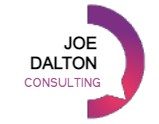Here’s what I’ve picked up over the years:
Most companies think business development is about speed, more calls, more activity, more pressure.
But the truth is far more human, far more strategic, and far more long-term.
After decades in business development, consulting, and sales, one thing becomes crystal clear:
Deals are driven by two forces:
- The strength of the relationship, and
- The readiness of the buyer.**
Everything else is noise.
1. You Are the Product (2026)
Many professionals, especially technical experts, believe their work is the product.
But in business development, you are the intervention.
People buy based on how you think, how you behave, how you show up, and how you handle the journey from first contact to proposal.
Shifting your identity from “we sell X” to “ I am part of the solution” changes the entire dynamic of client acquisition.
2. Business Development Is a Long Game
One of the biggest misconceptions is that BD is quick.
It isn’t.
Sometimes it takes months. Sometimes it takes years.
But if the relationship is strong and the value is real, the door eventually opens.
A nurturing program that lasts years isn’t a failure. It’s a case study in patience, consistency, and trust.
The question is never, “How many people did you contact today?” The real question is:
“How many conversations moved closer to a meaningful next step?”
Activity ≠ progress. Progress comes from quality, not quantity.
3. Relationship > Target
Platforms change. Trends change. But one thing has never changed:
Relationship building is the psychology of business development.
Not scripts. Not “smash the phones.” Not chasing vanity metrics.
People buy from people they like, trust, and believe in. They don’t buy from pressure, panic, or performance dashboards.
4. Why Some Prospects Take Years
Sometimes a prospect knows they should do something… and still doesn’t.
Just like smokers who “know” they should quit.
This is where business development becomes emotional, not logical.
The two biggest blockers to buying are:
- “We don’t need this.” (Perceived independence)
- “We’re scared to make a change.” (Emotional paralysis)
Readiness happens when the benefits of moving forward outweigh the comfort of staying the same.
Your job isn’t to push. It’s to increase readiness, reduce fear, and show a path to safety.
5. Diagnose Before You Prescribe
Modern business often jumps straight to “solutions.”
But without diagnosis, most solutions are guesses.
The highest-performing consultants and business developers always:
- Understand the organization
- Understand the sector
- Understand the deeper causes
- Only then propose interventions
Rushing destroys deals. Planning builds them.
As Deming famously taught, the planning phase should take longer than the doing. (William Edwards Deming was an American business theorist, composer, economist, and industrial engineer)
6. The Real Role of Courage in Business Development
Business development requires emotional bravery.
The courage to:
- Make the call
- Handle the rejection
- Walk away when it’s not a fit
- Keep going when it’s uncomfortable
- Practice your craft daily
Like world-class musicians say: “If I don’t practice today, I’ll hear it tomorrow. If I don’t practice tomorrow, the audience will hear it the next day.”
Consistency compounds.
7. Final Thought: Business Development Is a Human Game
In the end, business development succeeds because of this:
Readiness + Relationship + Relevance.
Pressure doesn’t work. Shortcuts don’t work. Arbitrary targets don’t work.
What works is:
- Understanding people
- Being the intervention
- Building trust
- Diagnosing properly
- Creating readiness
- Playing the long game with patience and professionalism
- Something AI will not do.
If you’re a business owner, founder, or CEO and you feel the business is stuck or you know your sales could be stronger and you’d like to find out how I can help, check out the link
Joe Dalton
Sales Craft™ Breakthrough BrandsAuthor | Award-Winning Broadcaster | TEDx | Speaker
#Sales #Leadership #BusinessGrowth
